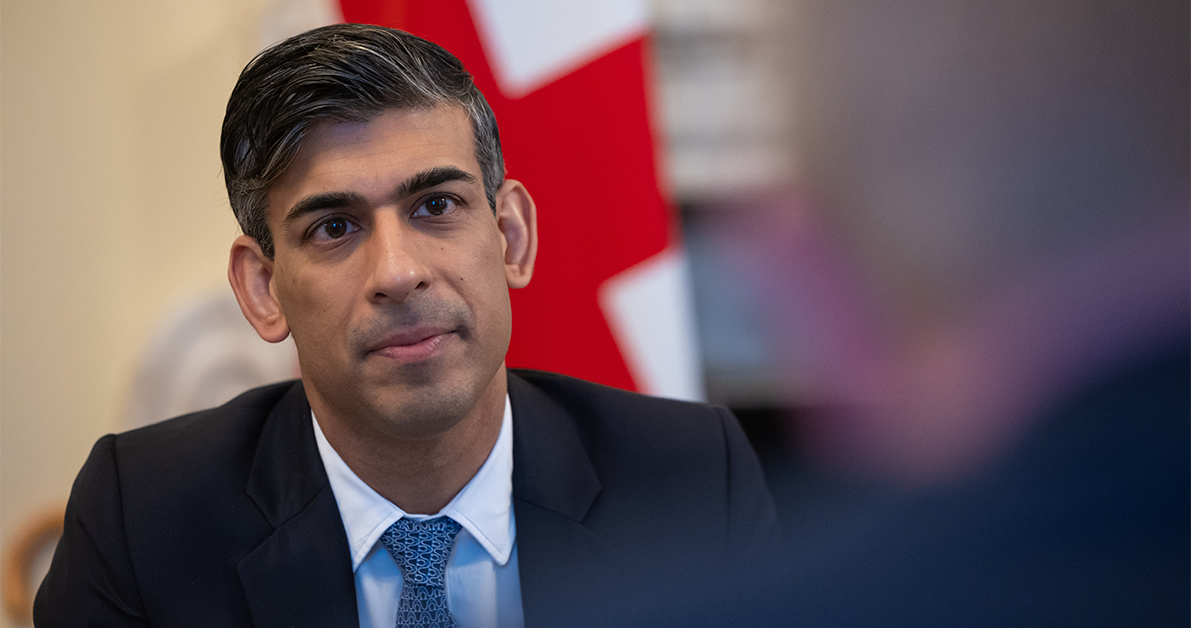
The Prime Minister, Rishi Sunak, has promised he would change the law on assisted dying if MPs vote in favour, and he will allow time for any bill that makes it through Parliament to be fully debated. Humanists UK welcomes these commitments and urges MPs to support a law that would give people with neurological conditions such as Motor neuron disease and ALS the right to have an assisted death on their own terms.
At the beginning of the year, Sir Keir Starmer, leader of the Labour Party, said he would be open to making parliamentary time for assisted dying.
Sunak’s comments were made to Matt Ryan, 44, who told the Prime Minister that in the last two years both his father, David Minns, and sister Katie, have died from cancer.
Sunak called Matt’s submission to the Health and Social Care Committee’s inquiry into assisted dying ‘So powerful and so moving… It’s hard not to hear your family’s story of just incredible courage and not be really moved by it… I’m very sympathetic to what you are saying.’
Matt’s story shows the power of sharing these personal stories. If you have been personally affected by the UK’s current assisted dying law, please get in touch.
The committee has finalised the report on assisted dying, and an announcement about the report’s publication is expected soon.
The last private member’s bill on the subject ran out of parliamentary time before a vote in 2021.
Nathan Stilwell, Assisted Dying Campaigner for Humanists UK, said:
‘We welcome Rishi Sunak’s comments that he would make parliamentary time for an assisted dying vote. The overwhelming majority of voters in the UK want to see a vote on this vital issue – the people desperately want this right over their own lives and ultimately their own deaths.’
‘It’s barbaric that the current law forces certain individuals to suffer – countries like Switzerland, Belgium and the Netherlands have had working, safe and compassionate assisted dying laws for decades. Adults of sound mind who are intolerably suffering from an incurable, physical condition, and have a clear and settled wish to die should have the option of an assisted death.’
The last time assisted dying was voted on in parliament was in 2015, where it was heavily defeated. There have been no assisted dying bills announced, so it will not be debated in this parliamentary term. Key debates and votes on assisted dying are expected in Scotland, Isle of Man and Jersey this year.
Humanists UK campaigns for a humane law with robust safeguards so that terminally ill and incurably suffering people can freely choose when and how they die, if and when they should decide their suffering is too great to bear, and once palliative care options have been tried and exhausted.
If you are struggling to cope, please call Samaritans for free on 116 123 (UK and ROI) or contact other sources of support, such as those listed on the NHS Help for suicidal thoughts webpages. Support is available round the clock, every single day of the year, providing a safe place for anyone struggling to cope, whoever they are, however they feel, and whatever life has done to them.
Notes
For further comment or information, media should contact Humanists UK Assisted Dying Campaigner Nathan Stilwell at press@humanists.uk or phone 07456 200033.
If you have been affected by the current assisted dying legislation, and want to use your story to support a change in the law, please email campaigns@humanists.uk
Read six reasons we need an assisted dying law.
Read more about a decade of campaigning for the legal right to die – at home and abroad.
Read the ONS study on suicides among people diagnosed with severe health conditions.
Read more about our campaign to legalise assisted dying in the UK.
Humanists UK is the national charity working on behalf of non-religious people. Powered by 120,000 members and supporters, we advance free thinking and promote humanism to create a tolerant society where rational thinking and kindness prevail. We provide ceremonies, pastoral care, education, and support services benefitting over a million people every year and our campaigns advance humanist thinking on ethical issues, human rights, and equal treatment for all.
